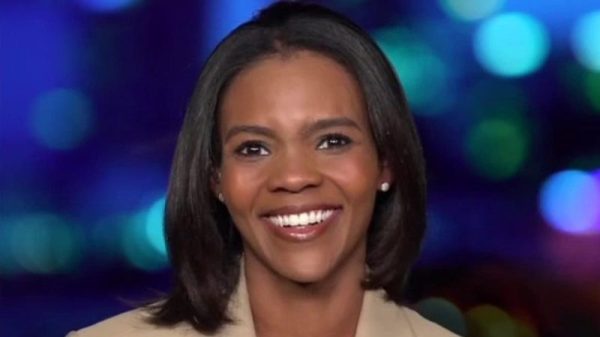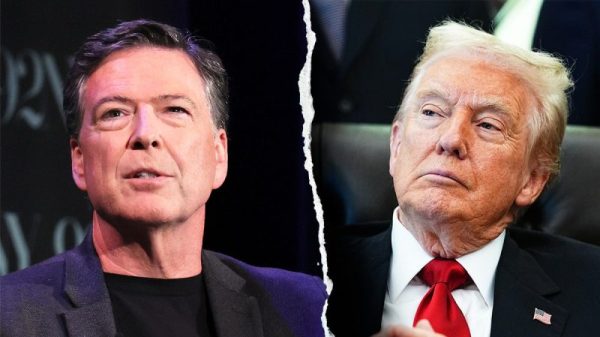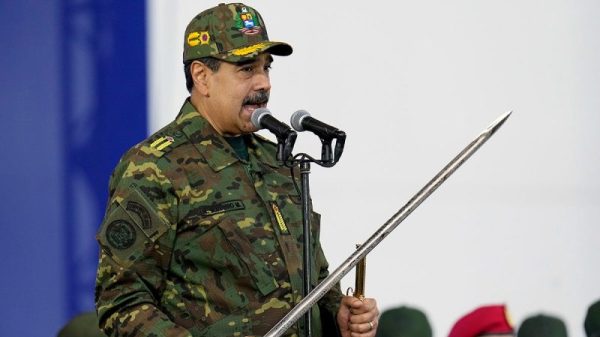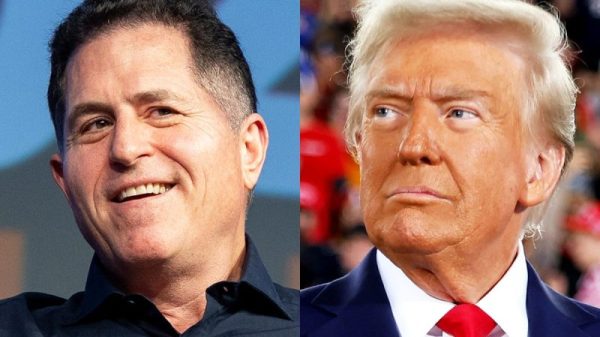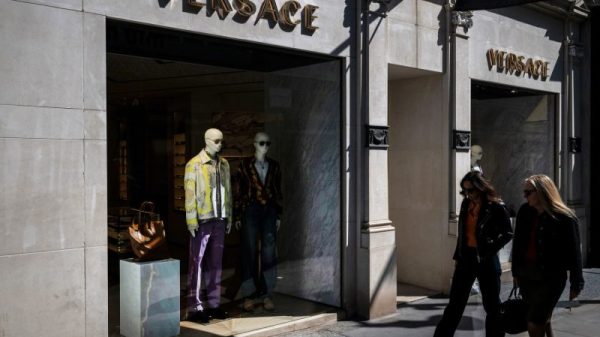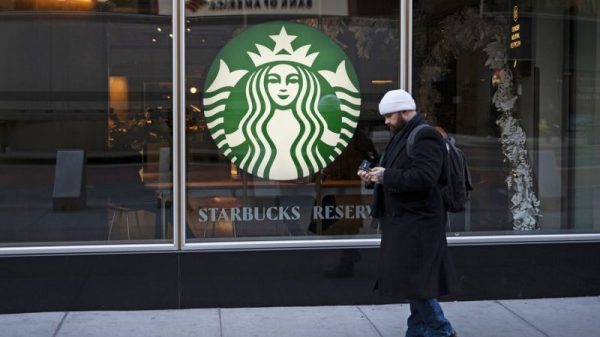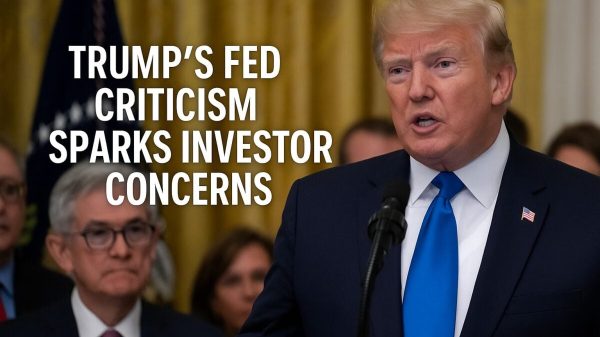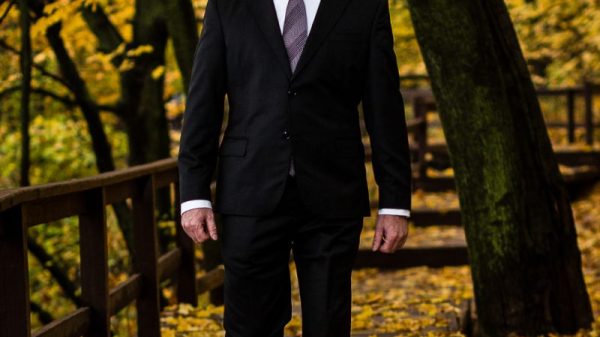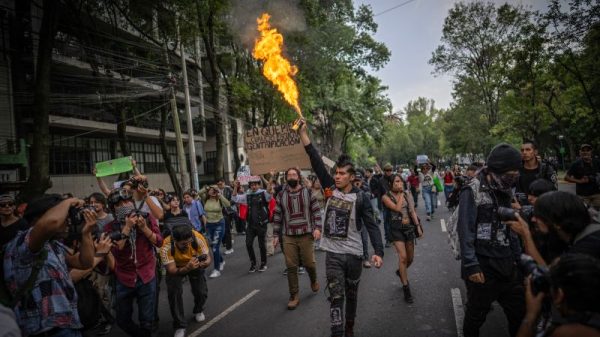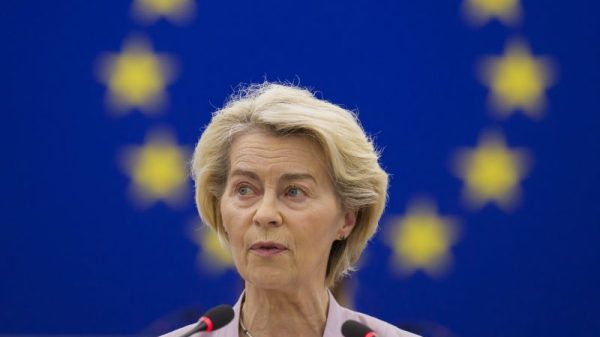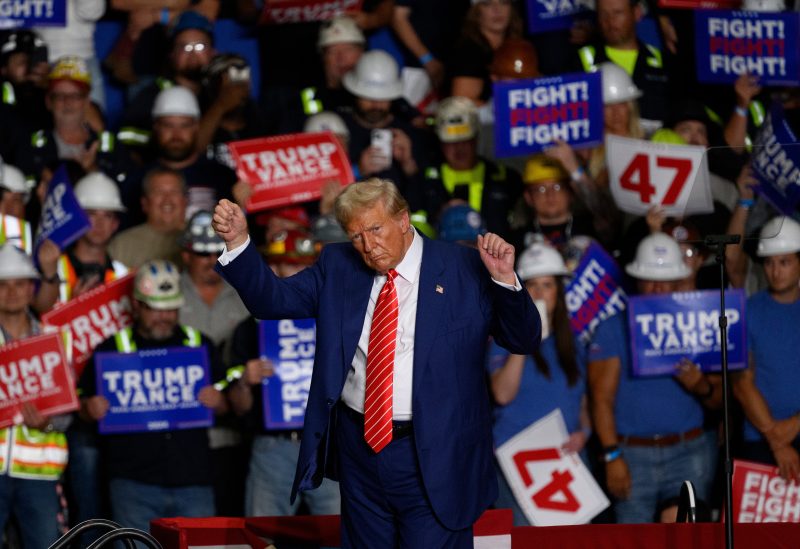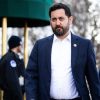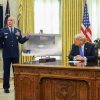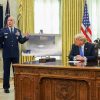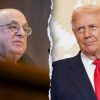No one has summarized the engine of Donald Trump’s politics more aptly than the Atlantic’s Adam Serwer, writing in 2018: the cruelty of his presentation and plans and promises is the point.
“It is that cruelty, and the delight it brings them,” Serwer wrote, “that binds his most ardent supporters to him, in shared scorn for those they hate and fear.”
All that has changed over the past six years is the extent to which that cruelty manifests and the urgency that Trump and his supporters feel in demanding it.
Speaking at a rally in Wisconsin on Saturday, Trump inveighed against immigrants, as he does, with his now-familiar hyperbole about the purported danger posed by those seeking new lives in the United States. When he announced his initial candidacy in June 2015, his comments about how Mexico was intentionally sending criminals and rapists into the country met with backlash from Republican politicians still operating under the assumption that such dishonest hostility was anathema to Americans. It wasn’t, and Trump’s reiterations of similar false claims barely makes it into news stories.
The comments in Wisconsin did, though, because he added an important adjective to the mix.
“In Colorado,” Trump said, immigrants are “taking over. I mean, in Colorado they’re so brazen they’re taking over sections of the state.” (This is obviously not true.) “And, you know, getting them out will be a bloody” — he seemed to search for a word — “story.”
He continued on for a bit, claiming (falsely) that the United States is now home to “the worst criminals in all of these countries,” people told that “if you come back, you will be executed.”
That “bloody” descriptor, though, is potent. It’s a pledge not just of the cruelty of ostracism or subjugation. It’s a promise that the purported dangers of immigrants will be met with force, with cracked skulls or — as Trump reportedly suggested while serving as president — gunfire.
One of the lingering images from July’s Republican convention was a sea of giddy delegates, then expecting a Trump romp in November, waving signs reading, “Mass Deportation Now.” For nine years, Trump supporters have been reminded that dark-skinned people coming to the United States from other countries are a critical problem. Trump’s 2024 campaign has been more explicit than his prior two about how he’ll rip those immigrants out of the national fabric, and his party seemingly couldn’t have been more thrilled. Sure, there are legal protections for people seeking asylum in the U.S., but there used to be legal protections for access to abortion, too.
But he has to win first — or at least, be inaugurated. To that end, Trump offered another pledge of action in a post on the social media site he owns.
“[T]he 2024 Election, where Votes have just started being cast, will be under the closest professional scrutiny,” he wrote, “and, WHEN I WIN, those people that CHEATED will be prosecuted to the fullest extent of the Law, which will include long term prison sentences so that this Depravity of Justice does not happen again.” He added that the threatened “legal exposure extends to Lawyers, Political Operatives, Donors, Illegal Voters, & Corrupt Election Officials.”
There are multiple layers here, obviously. Trump wants to suggest that the election is already under threat, mirroring his months-long effort before 2020 to suggest that any negative results were suspect. He also wants to instill a sense of trepidation among those who finalize election results, a fear that accurately reporting a Trump loss will bear costs that falsely reporting a victory wouldn’t.
But he’s also making another promise of punishment. Trump’s definition of election “cheaters” is as vaguely defined and expansive as his definition of “illegal immigrants.” In the wake of 2020, he accused myriad officials and observers of having skewed the results — all accusations that were meritless. As with a national effort to remove immigrants, an effort to settle scores with those who weren’t willing to rubber-stamp his victory would necessarily be scattershot and personal and chaotic. But there would be an earnest effort, as there was after 2020.
Instead of picking out isolated bad actors, Trump identifies bad actions. He then folds people into those categories as needed.
Trump’s allies on the broader right understand how useful this approach is. A campaign predicated (as Trump has said) on retribution is one in which the person facing the retribution is less important. An entire galaxy of people and institutions can be presented as enemies of Trumpworld, including former members of Trumpworld. And his base is primed for them to be punished. Elites, Democrats, people who live in cities, gay people, immigrants, elections officials.
And government rulemakers: One of Trump’s central goals, should he return to office, is to upend the federal bureaucracy, ostensibly because it’s a Deep State or because it’s Wasting Your Tax Dollars. Also because making money is easier when you don’t have to worry about the law, and a lot of Trump’s allies are centrally interested in making more money.
And those in popular culture: Conservative activist Leonard Leo has pledged to spend $1 billion in an effort to “crush liberal dominance where it’s most insidious” — meaning “news and entertainment, where left-wing extremism is most evident.” His effort is an institutional one, aimed at creating an explicitly right-wing entertainment and informational space, like Elon Musk’s purchase of Twitter brought to scale. He’s doing so, in part, by leveraging the right’s — that is, Trump’s base’s — hostility to those perceived or identifiable as left-wing and/or as anti-Trump.
The Washington Post’s Tim Craig visited Butler, Pa., the site of the attempt on Trump’s life last month, finding a community deeply divided along partisan lines. He spoke to a local businessman who supports Trump.
“Everyone knows you got to ‘fight, fight, fight,’ ” Bob Oesterling told Craig, “or we are done as the United States of America.”
Oesterling was mimicking Trump’s exhortation to the crowd after the attack, a call to do battle with unidentified enemies. But everyone in the audience knew who the enemies were. Everyone reading this knows who the enemies are.

